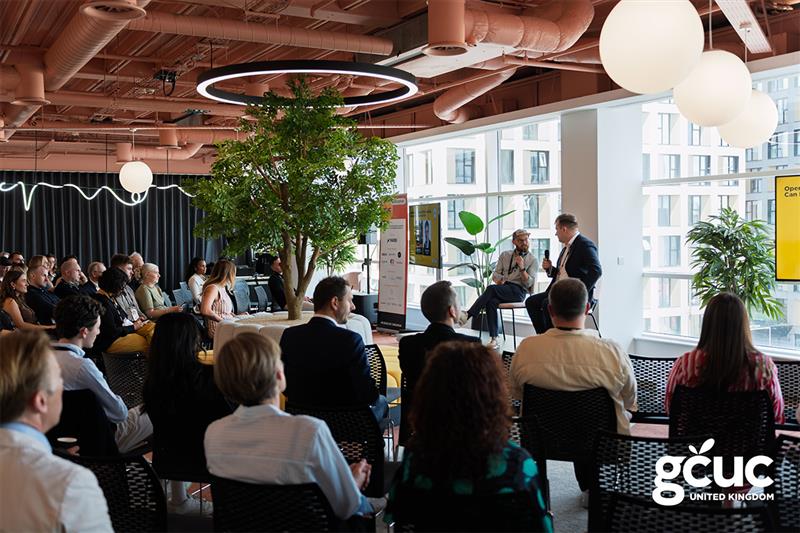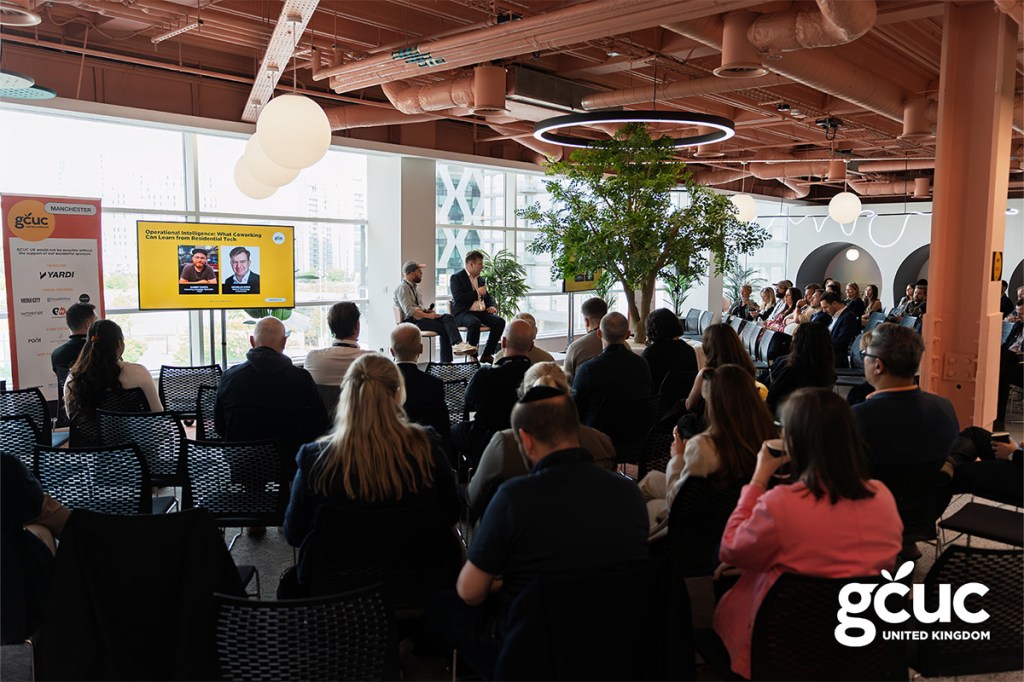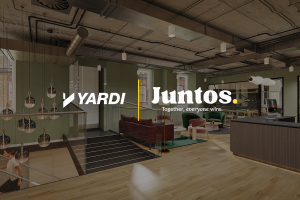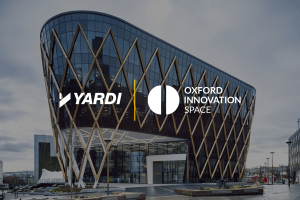GCUC Manchester 2025: What Coworking Can Learn from Residential Tech
Last month, GCUC returned to Manchester, bringing together leaders in coworking, property management and technology to explore the future of flexible workspace. Among the standout sessions was a compelling interview on the topic of “Operational Intelligence: What Coworking Can Learn from Residential Tech” – led by Yardi’s Marketing Campaign Specialist, Sammy Dukes and featuring Nicolas Drew, head of technology at urbanbubble. The discussion focused on the transformational role technology plays in operational efficiency, data visibility, automation and the resident (or user) experience within residential property management – and what insights the coworking sector can gather from this.
The conversation explored how urbanbubble, a major player in the UK’s build to rent (BTR) and co-living markets, has utilised Yardi’s end-to-end platform to address operational challenges, streamline systems and future-proof its business. Drawing parallels between residential and coworking operations, the speakers shared practical lessons in automation, business intelligence and digital-first experiences that could significantly benefit coworking operators.

Overcoming Operational Fragmentation
Opening the discussion, Dukes noted the striking operational parallels between coworking and residential property management. “It’s about efficient use of space and asset management. It’s about providing seamless customer experiences, extending the average lifespan of your customers and community building at the heart of it,” he observed. These shared objectives set the stage for deeper learning between the two sectors.
When Drew joined urbanbubble in 2022, he found critical inefficiencies in reporting and IT infrastructure. “One of the first key challenges was the surfacing of data and reporting. A lot of the time, the data doesn’t catch up or doesn’t keep pace with asset managers and fund managers who want to see lots of data,” he explained.
Another significant challenge was technology fragmentation. “We’ve run something like 28 systems across the whole business,” Drew noted. This led to inefficiencies, particularly in procurement and central finance functions. For example, “we had four different systems doing POs depending on which part of the business you worked in. It’s okay for the people on site, but the central team that has to reconcile this, it’s really hard.”
The Value of Integration & Automated Payments
A major area of transformation for urbanbubble came through payment integration. “We have across the BTR and co-living portfolio about 3,500 direct debit mandates that we collect each month,” said Drew. Initially, this was a manual and time-consuming process reliant on EFT files, but the implementation of Yardi’s automated payment processing streamlined the system dramatically.
“Something that used to take many days a month to process now takes minutes,” Drew reported. Automation not only improved internal efficiency but also provided a more reliable and scalable foundation. “As you scale, past that 10,000-unit marker, a finance team trying to reconcile debits each month is just not something they want to be doing.”
Drew further highlighted the cost benefits of promoting direct debit and pay-by-bank methods over card payments. “Within property, the fees on direct debits are a lot less, so we’re pushing wherever possible to move people to pay-by-bank payments.”
Leasing Automation & the Rise of No-Touch Tenancies

One of the most impactful changes urbanbubble has seen is in digitising the leasing journey. “We’ve got a subset of customers that are almost ‘no-touch’,” Drew quotes. “They look at the floor plan, the interactive tour and go, ‘Yep, I want that unit.’ The first time they physically see the property is on move-in day.”
This end-to-end online experience removes friction and reduces the need for site-based negotiators to handle routine queries. “The negotiators on site can spend their time doing more high-value tasks, helping residents rather than answering 700 enquiries a day,” he added.
The emphasis on automation also extends to building a sense of community. “Teams on site want to do the work that matters. They want to help people integrate into the community, answer questions about local amenities, or promote on-site events,” Drew highlights.
Predictive Maintenance & the Power of Asset Tagging
Maintenance is another area where residential tech excels and coworking can take notes. urbanbubble has implemented resident-facing apps that allow tenants to log maintenance issues with images, voice notes and videos. “Historically, someone would call and say ‘a light’s out’ – but where’s the light? What fitting is it? What room is it in?” Drew explained. “We’ve streamlined that with an app, so the FM team can now go straight to work.”
urbanbubble has also embarked on an ambitious asset-tagging programme. “Everything from plugs to sofas is being tagged,” said Drew. “That way, when an issue is logged, we know when the asset was installed, who supplied it and whether it’s under warranty. It makes our FM team’s job dramatically easier.”
For coworking operators, this level of proactive asset management could ensure more consistent member experiences and reduce time-to-resolution on facility issues.
Business Intelligence & AI-Driven Decisions
One of the most advanced areas of discussion focused on business intelligence. Drew emphasised that building a robust data architecture was pivotal to their success. “When reporting has been manual and people are in Excel correcting data, it’s not until you surface it automatically that you realise how poor some of the data quality is,” he said. He cited examples such as discovering “seven different spellings of the word British” in their demographic fields.
Once cleaned and structured, data from leasing, facilities and amenity usage can directly inform future investment decisions. “Smart sensors in gyms or cinema rooms show us which amenities residents use,” Drew explained. “That insight helps shape how we design future buildings.”
This type of data-driven insight, from lease cycles to occupancy forecasting, enables more strategic long-term planning, something coworking operators can readily adopt. “If 30% of your leases expire in July and none are renewed, you’ll have a major vacancy risk. Visualising this data makes all the difference,” he added.

Final Thoughts: Lessons for Coworking Operators
The insights shared by urbanbubble’s technology journey offer tangible takeaways for coworking operators seeking to optimise their operations. From automating payments and leasing to leveraging integrated tech stacks and predictive maintenance. The residential sector showcases what is possible when digital transformation is embraced at scale.
As Dukes aptly noted at the outset of the interview, “Coworking and residential may appear different on the surface, but they’re ultimately about the same thing – delivering seamless experiences and managing space intelligently.”
By adopting operational practices rooted in residential property management, coworking providers can not only reduce costs and streamline workflows but also enhance the member experience and build lasting communities.
This is precisely where Yardi Kube comes in. Designed specifically for the coworking and flex space industry, Yardi Kube delivers an all-in-one platform for space management, billing automation, access control and member engagement – empowering operators to scale efficiently while focusing on what matters most.
For more details on the latest Yardi Kube update, please contact your account manager or reach out via Client Central.
Stay connected with us by following Yardi Kube on LinkedIn. If you’d like to see Yardi Kube Testimonials, check out our case studies.




